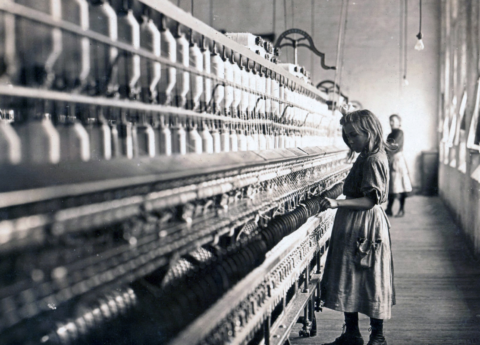Coming over two years after the recession officially ended, Labor Day 2011 should be a time to celebrate a return to growth and prosperity.
But the reality is much different across Kentucky, as jobs are hard to come by and workers’ paychecks aren’t getting any bigger.
To make matters worse, the lingering effects of the economic downturn only deepen troubling trends in income and the loss of blue-collar jobs that were the reality for working Kentuckians even in so-called good times prior to the recession.
As the conversation in Washington bypasses the central topic of jobs, the tough times facing working Kentuckians threaten to persist for years to come without further action.
There are three big headlines in the state of working Kentucky this Labor Day:
Slow Job Growth against Big Job Needs
Because so many jobs were eliminated during the recession, the Kentucky economy has a long swim ahead until it reaches shore. Right now, it’s only treading water.
Over the last year, the state has added 2,300 jobs a month on average. But Kentucky needs 4,500 jobs a month every month for three straight years to get employment levels back to where they were pre-recession and catch up with growth in population.
Of those who have lost their job in Kentucky, over one-third are among the long-term unemployed—those who have been without a job for more than six months. All measures of what is called underemployment are also up across the state, including people who are so discouraged they have stopped looking for work and those who are working part-time but would rather work full-time.
Industries with jobs traditionally accessible to Kentuckians without a college education were especially hard hit in the recession. Kentucky now has one-third fewer manufacturing jobs than it had in 2000. Around a quarter of construction jobs have been eliminated in the last three years.
Stagnant Wages and Dwindling Job Quality
High unemployment contributes to stagnant wages, as employers know workers can’t just switch jobs if they don’t get a raise. Yet flat wages were a problem in Kentucky even before the recession. Adjusting for inflation, wages for the median Kentucky worker (at the median half make more and half make less) are only one percent higher in 2010 than they were in 1979 despite huge productivity gains over those years. Employers simply haven’t shared those gains with workers.
For lower wage workers, the problems are worse. Their wages have actually declined when inflation is figured in. The share of the workforce making poverty wages has increased since 2000, and is now about one-third of workers.
At the same time, job quality is eroding as health insurance, retirement and other benefits continue to be reduced.
Persistent Inequality between Kentuckians
Meanwhile, disparity between Kentuckians based on race, age and gender remains.
The recession hit African Americans and Latinos in Kentucky particularly hard. Despite similar or even higher levels of participation in the labor force compared to whites, African Americans and Latinos have much higher levels of unemployment and underemployment. One out of every five African Americans in Kentucky is unemployed.
Young workers under age 24 also have had a steep increase in unemployment. Kentucky faces the prospect that thousands of young people may be forced to delay the start of their careers, damaging their long-term financial success.
And the gender gap remains—median female wages in Kentucky are about 20 percent lower than men’s. The gap has been slowly closing over the past thirty years, but partially because men’s wages have languished.
These three trends—slow job growth, stagnant incomes and persistent inequality—reinforce each other and add up to a time of serious economic distress for families across the Commonwealth.
These problems won’t just fix themselves. To really move forward, we need the federal government to play a stronger role in spurring demand and creating jobs. That means investment in infrastructure, help for still-struggling state budgets, extension of assistance programs to low-income Americans and investment in public jobs programs.
Otherwise, we will likely be telling the same story for many Labor Days to come.
Published in the Owensboro Messenger-Inquirer on September 5, 2011.



